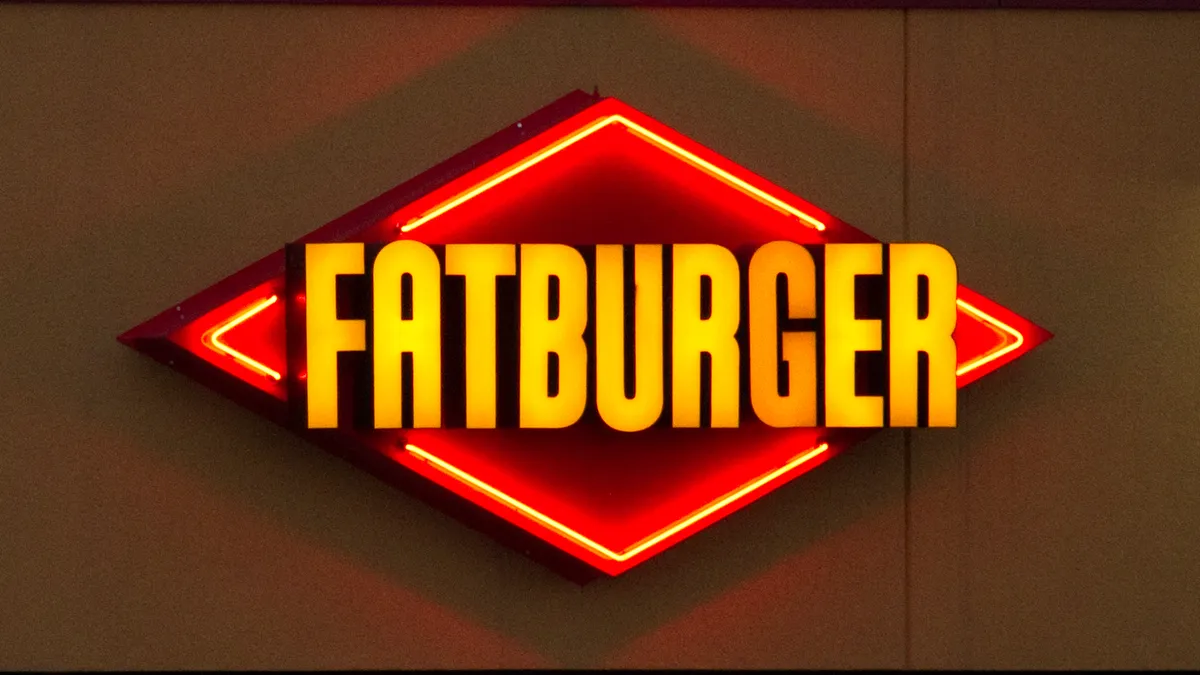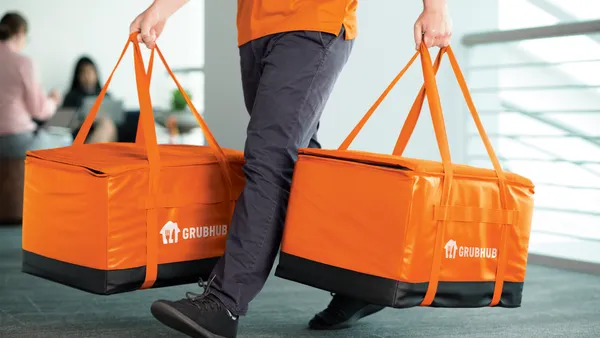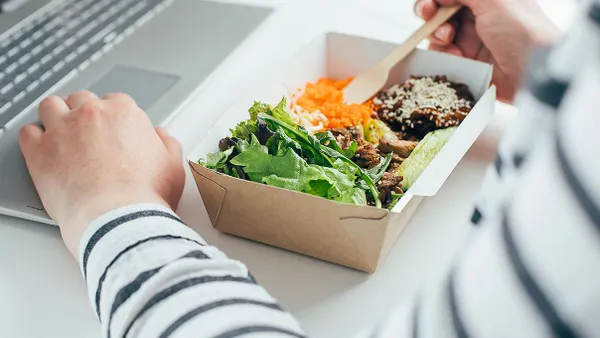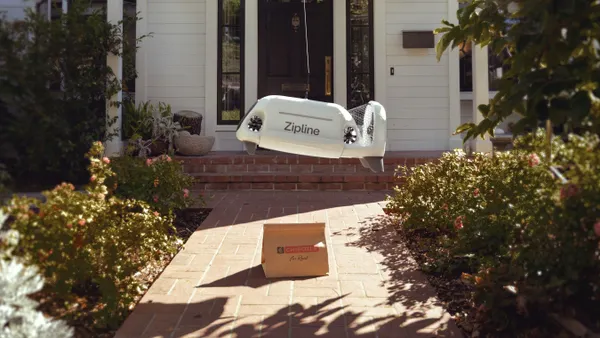Fresh off its $10 million purchase of grass-fed burger chain Elevation Burger, serial acquirer FAT Brands is eyeing a new strategy to feed its hunger for expansion: ghost kitchens.
President and CEO Andy Wiederhorn told Restaurant Dive that the company is hoping to begin operating Fatburger, the company's star chain, out of sister brand locations to grow its delivery footprint later this year.
"We want to take the opportunity to offer our brands everywhere we can to consumers. We don't necessarily have to have a brick-and-mortar location," Wiederhorn said. "If we have the supply chain available and there's brand awareness, it makes sense to make [brands] available at existing brick-and-mortar locations."
Wiederhorn stressed that this tactic will be different from its co-branded strategy, which has paired more than 100 Fatburger and Buffalo Express restaurants together under the same roof since 2012. He reported during FAT Brands' Q1 earnings call that co-branding drives a 20% to 30% uptick in average unit volume compared to traditional stores, and claims the ongoing strategy hasn't burdened franchisees.
By contrast, a virtual Fatburger would operate out of the back-end of a host restaurant's space, only appearing on consumer's mobile delivery apps. The aim would be to give franchise partners additional revenue sources, Wiederhorn said, a top concern for a market squeezed by steep real estate costs and oversaturation.
As far as test concepts go, virtual kitchens are relatively low risk for restaurants — it costs around $800,000 to trial new menu items at a traditional format, but a menu flop would only cost a ghost restaurant around $25,000, according to Fast Company. This strategy also poses serious reward, as many brands report higher average ticket prices when diners order through mobile apps. Wetzel's Pretzels, which is currently testing ghost kitchens, reports that delivery sales are 75% higher than in-store sales, for example.
"We want to take the opportunity to offer our brands everywhere we can to consumers, we don't necessarily have to have a brick-and-mortar location."

Andy Wiederhorn
President and CEO, FAT Brands
But while heavyweights like Chick-fil-A, Red Robin and Outback Steakhouse are also trying their hands at ghost kitchens, FAT Brands' idea to cross-pollinate its brands via virtual restaurants is unique.
"It doesn't grow unit count, it grows total sales per franchisee. ... Our entire focus is on the success of our franchisees," Wiederhorn said. "This could help grow their business. … You'll see strong emphasis on this in the second half of the year."
The virtual Fatburgers would also make its Impossible patty-based burger, which has driven 3% to 5% of new customers, more widely available. Wiederhorn said because of the product's success, FAT Brands is looking to better leverage plant-based and vegan options at Fatburger — which launched vegan cheese in May — and beyond.
He said that trend-forward Elevation Burger, which already offers sustainable and organic menu items, will serve as a testing ground for plant-based proteins going forward. The restaurant doesn't currently offer any plant-based meat, but Wiederhorn said he'd like to bring both Impossible and Beyond Meat products to the chain to gauge customer response to each, as well as Tyson's new meatless product.
Eventually, the plant-based items tested at Elevation Burger could be scaled to Fatburger and other sister brands, he said, though he doesn't think every brand will have multiple plant-based meat options.
Wiederhorn said that some store renovations may be necessary to accommodate Fatburger in various sister locations, since the brands in its portfolio have different cooking needs and kitchen design varies location to location, regardless of brand. Fatburgers are cooked on flat grills, for example, while other restaurants employ flame grills. Still, he doesn't anticipate this to be a major financial constraint.
He also said that the company would be careful to ensure that virtual Fatburgers don't cannibalize existing brick-and-mortar Fatburger locations.
"We wouldn't put our franchisees in that situation," Wiederhorn said. "We really don't have a lot of overlap [between] our different concepts. For example, there aren't a lot of Fatburgers that overlap with where our Ponderosas are."













